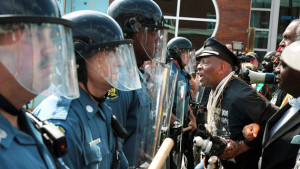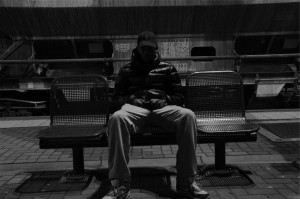A quick way of assessing the emotional dysfunction of a family is seeing how often its members resort to “blamestorming”. The term (an American invention) refers to meetings at which everyone complains while offloading all responsibility on to someone else. The US is in the middle of a giant blamestorm right now over race, crime and policing.
Depending on which side you’re on, the police are either wilfully murdering black males or are the victims of social persecution. Meanwhile, after reaching historic lows, the crime rate is increasing again: murders are up 19% in Chicago, 33% in New Orleans, 56% in Baltimore and 60% in St Louis over the past year.
Some experts say the two issues are linked, calling the phenomenon the “Ferguson effect”, after the uproar in Ferguson, Missouri, following the fatal police shooting last year of an African-American man named Michael Brown. Continue reading…








